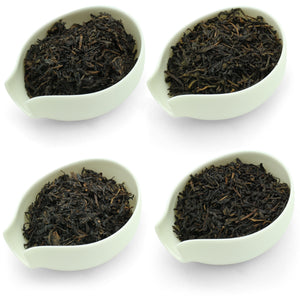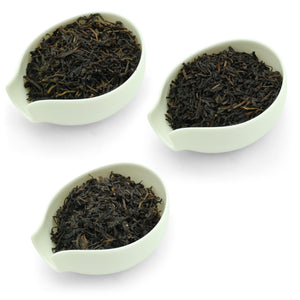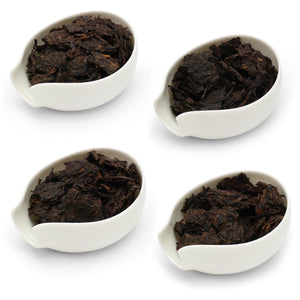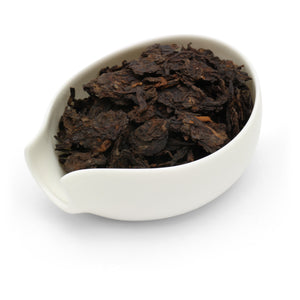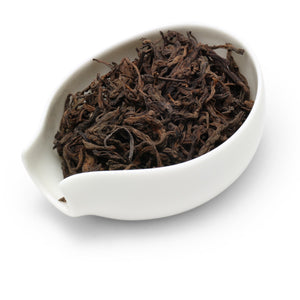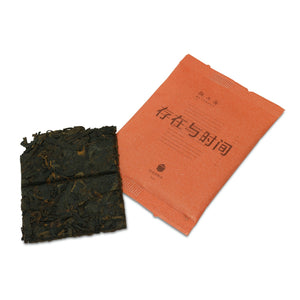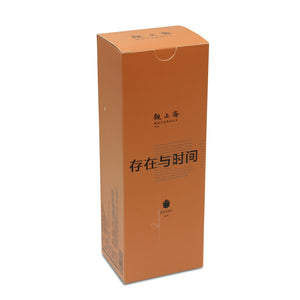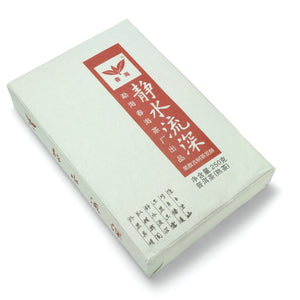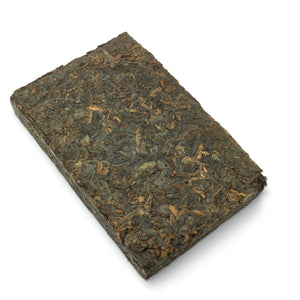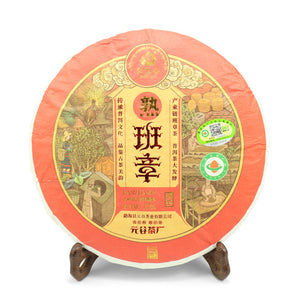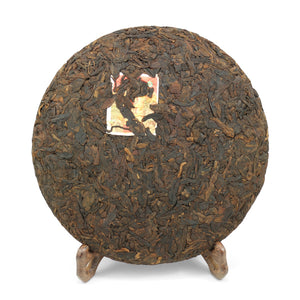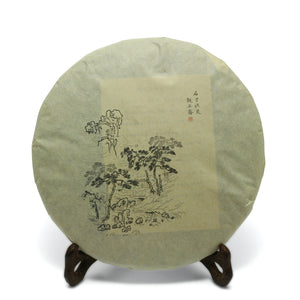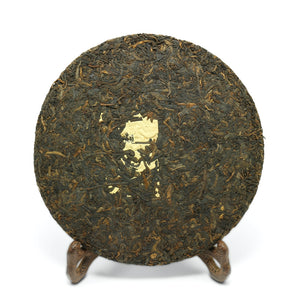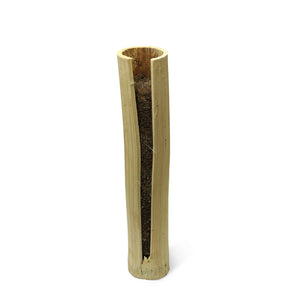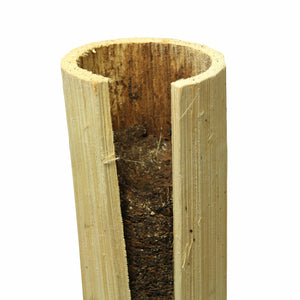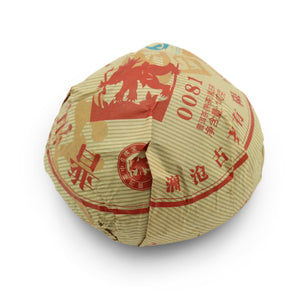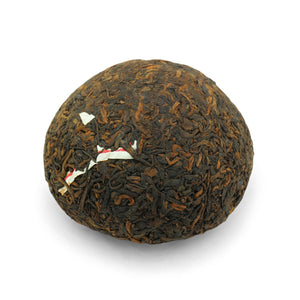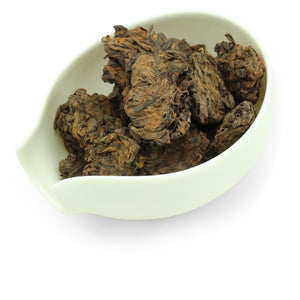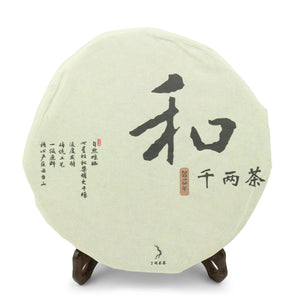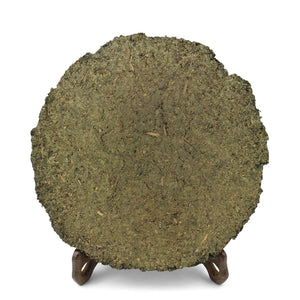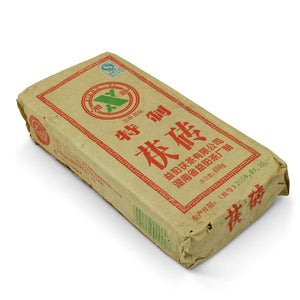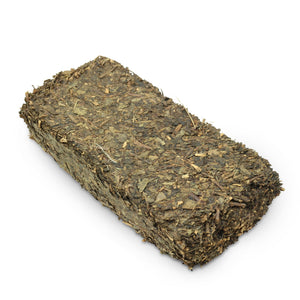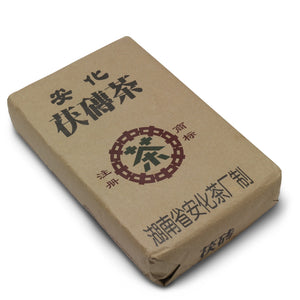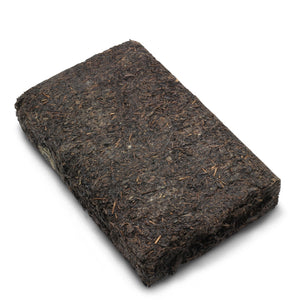Dark Tea
Hei cha—literally 'black tea'—refers to tea fermented with microorganisms or aged to produce earthy flavors and a dark brew, Shu Pu'er being the most well-known. For this reason, it is also sometimes referred to as 'post-fermented tea'.
What is Pu'er Tea?
Pu’er Tea is the empress among dark teas due to its exquisite taste and health properties. It is a tea produced only in the Yunnan province of China. The leaves undergo a process of microbial fermentation, which also continues during storage, steadily changing the taste and appearance of the tea. For this reason dark tea is also called post-fermented tea.
How Pu'er is made
Processing begins like green tea: the leaves are heated, shaped and dried. It is then subdivided into Sheng and Shu:
Sheng Pu'er
Sheng Cha, 'raw tea', is the oldest and most traditional. Once dried, the leaves is re-softened by steam and pressed into bing cha ('cake tea'). It has green leaves at the beginning, which through the slow process of ageing and gradual fermentation get darker to acquire a unique richness of taste. Sheng Cha can be very valuable after some decades of ageing, with some vintages being extremely sought after. However, the raw material is of utmost importance for the quality of the brew; ordinary Sheng Cha will never turn into a premium Pu'er upon ageing.
Shu Pu'er
In the seventies, when the demand for aged Pu’er tea exceeded supply, a new manufacturing process, called Wo Dui, was developed by The Menghai Tea Factory to speed up ageing. The natural fermentation processes are accelerated in a dedicated fermentation chamber to achieve within a mere few months after harvest the intense flavour and dark colour that would take decades to develop through ageing. The final product is called Shu Cha, meaning “cooked” or “ripe” tea.
Although the accelerated processing cannot be compared to the natural modifications occurring in Sheng Cha over years, Shu Cha should not be considered second-class Pu'er, and has developed its own dedicated and even fanatic following, as market prices confirm. Shu Cha is itself suitable for ageing, and the taste continues to change over time, resulting in interesting combinations of natural and induced taste nuances.







